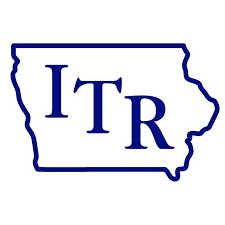Survey results detail COVID vaccine mandates, incentive strategies among U.S. employers

BUSINESS RECORD STAFF Nov 4, 2021 | 8:11 pm
2 min read time
516 wordsAll Latest News, Health and WellnessAccording to a new survey by global insurance brokerage Gallagher, 17% of employers polled are now mandating vaccinations for those returning to the office, up from 8% in a survey conducted by Gallagher in August. With fluctuating infection rates and increasing federal and state directives, many employers are adopting or considering new policies to protect the health of their employees and businesses.
The “Workforce Trends Pulse Survey #3,” which included 522 employers, found that more than two-thirds of employers (68%) encourage vaccination, appropriate masking and other safety protocols.
The results were released on Wednesday, ahead of today’s news that the Biden administration has set Jan. 4 as the deadline for employers with more than 100 workers to ensure their employees are vaccinated. Iowa Gov. Kim Reynolds responded this morning with a pledge to take immediate legal action to challenge the federal mandate.
While the delta variant is not delaying return-to-workplace for most (74%), there is a 9% uptick in requiring documented proof of vaccination or a negative COVID test within 24 hours prior to entering the workplace, the survey showed. Additionally, more employers are requiring all employees to wear masks (52%) rather than restricting masking rules to only the unvaccinated (14%).
An effective vaccination strategy should be formulated around clear policies that comply with legal and regulatory requirements and align with an organization’s culture and business goals, said William Ziebell, CEO of Gallagher’s Benefits & HR Consulting Division. “Communications about vaccination policies and plans are equally important and should be designed to encourage an open dialogue and respect from multiple perspectives.”
The survey also found that many employers are encouraging vaccination through incentives. Almost half (49%) provide time off to receive the vaccine and 10% use financial incentives. Typically, financial incentive amounts are $100 to $249 (46%), but ranges of $50 to $99 (22%) and $250 or more (29%) are also common.
Unvaccinated employees whose decisions are medically based, as well as those protected by human rights legislation for other reasons, such as religious beliefs, are legally guaranteed the opportunity for formal accommodations. Gallagher’s survey found that 56% of respondents don’t currently offer employee accommodations, and 26% have not yet decided on an approach. For those who do, accommodations take the form of remote work (17%); adjustments to roles, responsibilities or both (6%); and unpaid leave (5%).
On Oct. 29, Gov. Reynolds signed legislation that allows Iowans who lose their jobs for refusing to comply with their employer’s COVID-19 vaccination requirement to qualify for unemployment compensation payments. The new law also allows employees in private Iowa businesses to claim they are medically vulnerable or have a religious objection to a mandated vaccine based solely on their statements, rather than with the backing of a medical professional.
“As we’ve seen, an organization’s vaccination policy can be a polarizing issue,” Gallagher’s Ziebell said. “Some employees may end up leaving due to a vaccination policy, while others may leave over safety concerns,” Ziebell said. “Conversely, some employees may be attracted to an employer who mandates the vaccine as a sign that their personal values are aligned with the organization.”










